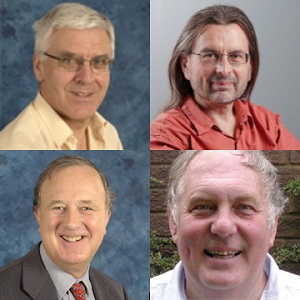UN researchers to have radon research paper published
Date 16.11.2015
16.11.2015
The University of Northampton’s Radon and Natural Radioactivity Research Group (RNRRG) has had a paper with the title ‘A Critical Analysis of Climatic Influences on Indoor Radon Concentrations: Implications for Seasonal Correction’ accepted for publication by the field-leading Journal of Environmental Radioactivity.
Dr Chris Groves-Kirkby, Dr Robin Crockett, Professor Tony Denman and Professor Paul Phillips of the RNRRG analysed a radon data-set spanning five years of measurements from the same building from 2003 to 2008. Radon is a naturally occurring radioactive gas which arises in the environment from uranium-235 in rocks and soils and diffuses into buildings. Radon accumulations can occur in some buildings, subject to any remediation that might have been undertaken, and are influenced by the weather and climate. The current research established that the main weather-climate influences on the radon level in this building are internal-external temperature difference and absolute humidity, rather than relative humidity as more commonly observed, in the external air.
The RNRRG has an international reputation for publishing original radon research across the spectrum from health impacts to geophysical and earthquake precursory phenomena. It has earned significant research income for all areas of its research, including UK DEFRA and UNESCO.
The Journal of Environmental Radioactivity is published by Elsevier, a major international publisher of peer-reviewed journals, and focuses on publishing original research on aspects of radioactivity in the natural environment.
—
Pictured: clockwise from top left: Dr Chris Groves-Kirkby, Dr Robin Crockett, Professor Paul Phillips and Professor Tony Denman.